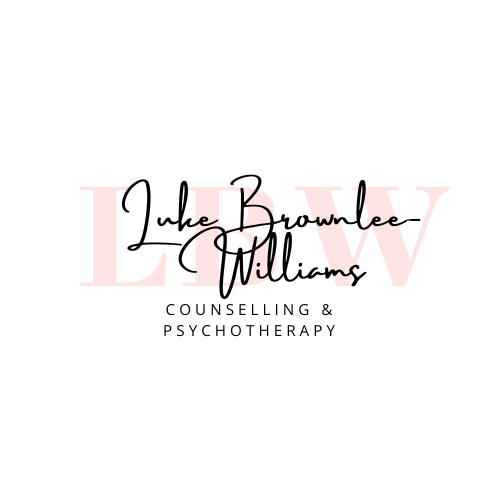Addiction
Definition of Addiction: "The condition of being unable to stop using or doing something as a habit, especially something harmful."
Source: Oxford Learner's Dictionaries
Bessel van der Kolk
Background: Bessel van der Kolk is a Dutch-American psychiatrist, researcher, and author who has spent decades studying trauma and its effects on the body and mind. He is the founder of the Trauma Research Foundation and author of the bestselling book "The Body Keeps the Score." Van der Kolk is considered one of the world's leading experts on trauma and PTSD, having worked with trauma survivors since the 1970s.
Definition of Addiction: Van der Kolk views addiction as a body-based survival strategy where traumatised nervous systems use substances or compulsions to quiet the "unbearable physical pain of our emotions."
Key Points:
Drugs and compulsive behaviours serve as self-medication for trauma-induced physiological chaos
ACE (Adverse Childhood Experiences) data show child abuse and neglect to be "the single most common cause of drug and alcohol abuse"
Recovery must restore bodily safety through understanding our feelings, emotions and how they are felt in the body.
Key Quote: "How many mental-health problems, from drug addiction to self-injurious behaviour, start as attempts to cope with the unbearable physical pain of our emotions?"
Source: The Body Keeps the Score (2014)
Gabor Maté
Background: Gabor Maté is a Hungarian-Canadian physician, speaker, and author who has spent decades working with addiction, trauma, and stress. He worked for many years with drug addicts in Vancouver's Downtown Eastside and has written several influential books including "In the Realm of Hungry Ghosts" and "When the Body Says No." Maté is known for his compassionate approach to addiction and his focus on the underlying causes of addictive behaviour.
Definition of Addiction: Maté conceptualizes addiction as a pain-relief relationship where every compulsion is an attempt to escape suffering.
Key Points:
His central principle: "Not why the addiction, but why the pain"
The pain nearly always originates in childhood adversity and disconnection
Healing requires compassionate inquiry, reconnection and agency—not just abstinence
Key Quote: "Addiction begins with solving a problem, the problem of human pain, emotional pain."
Sources: Various interviews and writings by Dr. Gabor Maté
Philippa Perry
Background: Philippa Perry is a British psychotherapist, author, and broadcaster. She has been practicing as a psychotherapist for over 20 years and is known for her accessible approach to psychology and mental health. Perry is the author of several books including "The Book You Wish Your Parents Had Read" and "Couch Fiction." She regularly appears on television and radio, making psychological concepts accessible to the general public.
Definition of Addiction: Perry frames addiction as a loud messenger for unmet emotional needs—a stand-in for the safety and validation we missed early on.
Key Points:
She personifies addiction as the "Addiction Monster" that lies to keep us using
Repressing feelings ("shush… be brave") leaves a void that substances rush to fill
Recovery starts with emotional validation and learning healthy self-soothing in relationships
Sources: The Guardian articles and therapeutic writings
John McLeod
Background: John McLeod is a Scottish psychologist and psychotherapist who has been a leading figure in counselling and psychotherapy research for over 30 years. He is Professor Emeritus at the University of Abertay and has authored numerous books on counselling theory and practice. McLeod is particularly known for his work on person-centered therapy, narrative therapy, and qualitative research methods in psychotherapy.
Definition of Addiction: McLeod's person-centred approach treats addiction as a story of self that can be re-authored within a trustworthy therapeutic relationship.
Key Points:
Clients in alcohol counselling report change in three domains: sense of self, relational safety, and life impact
Therapy flexibly shapes itself around the client's goals, emphasising collaboration over confrontation
Source: Person-centred counselling for alcohol-related problems research, Abertay University
Daniel J. Siegel
Background: Daniel J. Siegel is an American clinical professor of psychiatry at the UCLA School of Medicine and a prominent researcher in interpersonal neurobiology. He is the founding co-director of the UCLA Mindful Awareness Research Center and has authored numerous books including "Mindsight" and "The Developing Mind." Siegel is known for his work on how mindfulness and relationships can positively change the brain, and for developing the field of interpersonal neurobiology.
Definition of Addiction: Siegel frames addiction as what happens when the mind loses integration and drifts toward chaos or rigidity.
Key Points:
A healthy mind flows down the "river of well-being" between chaos and rigidity extremes
Blocked integration fuels compulsive loops
Interpersonal-neurobiology therapy rebuilds integration through mindfulness and attuned relationships
As self-awareness and self-regulation return, addictive symptoms give way to flexible, coherent living
Sources: Interpersonal neurobiology research and therapeutic applications
Summary
These five perspectives offer complementary views of addiction:
Medical/Dictionary: Habit-based inability to stop harmful behaviours
Van der Kolk: Trauma-driven bodily survival strategy
Maté: Pain-relief relationship rooted in childhood adversity
Perry: Messenger for unmet emotional needs
McLeod: Personal narrative requiring relational re-authoring
Siegel: Loss of neural integration between chaos and rigidity
Each approach emphasises different aspects of understanding and treating addiction, from physiological trauma responses to relational healing and neural integration.

